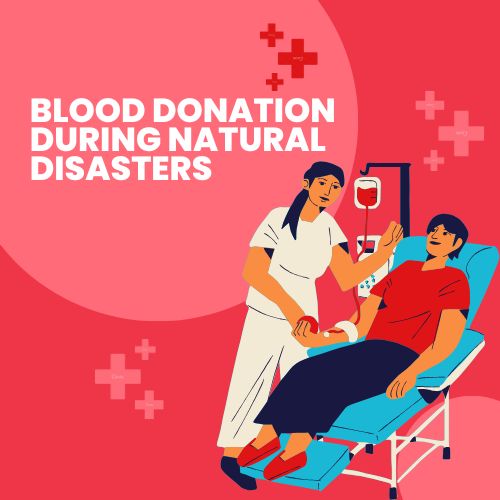Natural disasters, whether earthquakes, floods, hurricanes, or wildfires, often strike with little warning, leaving devastation in their wake. Beyond the immediate destruction of homes and infrastructure, these catastrophic events create a sudden and critical need for medical care. Among the most essential resources during such crises is blood—a life-saving commodity that can mean the difference between life and death for victims of injuries, accidents, and medical emergencies.
The Urgent Need for Blood
In the aftermath of a natural disaster, hospitals often face an overwhelming influx of patients with severe injuries, trauma, and complications. Blood supplies can be quickly depleted, especially if local donors are also affected or unable to reach donation centers. Blood transfusions become a lifeline for patients suffering from severe bleeding, surgeries, and other critical conditions. The need spans across all blood types, with O-negative blood—universal donor type—being in particularly high demand for emergencies.
Challenges in Collecting Blood
Natural disasters can make blood donation logistically challenging. Roads may be blocked, power outages can disrupt blood storage, and donation centers may be damaged or temporarily closed. Furthermore, the fear and uncertainty following a disaster can discourage willing donors from stepping forward. Despite these hurdles, organized and timely blood donation campaigns can significantly mitigate shortages and save countless lives.
The Role of Voluntary Donors
Voluntary blood donors are often the backbone of emergency response efforts. In times of crisis, blood banks may issue urgent appeals to the public, emphasizing the critical need for donations. Communities that foster a culture of regular blood donation are better prepared to respond when disaster strikes. Every donation can help multiple patients, as blood components—red cells, plasma, and platelets—can be separated and used according to specific medical needs.
Coordinated Response and Preparedness
Preparedness is key to ensuring adequate blood supply during natural disasters. Hospitals, NGOs, and government agencies often coordinate pre-disaster planning, including maintaining emergency blood reserves, organizing mobile blood donation drives, and setting up temporary collection points. Technology also plays a role, with apps and social media campaigns helping to mobilize donors quickly and efficiently.
Education is equally important. Encouraging people to donate blood regularly, rather than waiting for emergencies, ensures a steady supply and reduces the panic that can occur when disasters strike. Communities that understand the importance of blood donation are more resilient and capable of responding effectively in crisis situations.
The Emotional Impact of Donating in a Crisis
Donating blood during a natural disaster can have profound emotional significance. For many donors, it is an immediate and tangible way to help those in desperate need. The act fosters a sense of solidarity and compassion, showing that even in times of chaos, human kindness and cooperation can prevail. For recipients, every pint of blood received is a second chance at life, a reminder that they are not alone in their struggle.






Comments (0)
Login to post a comment.